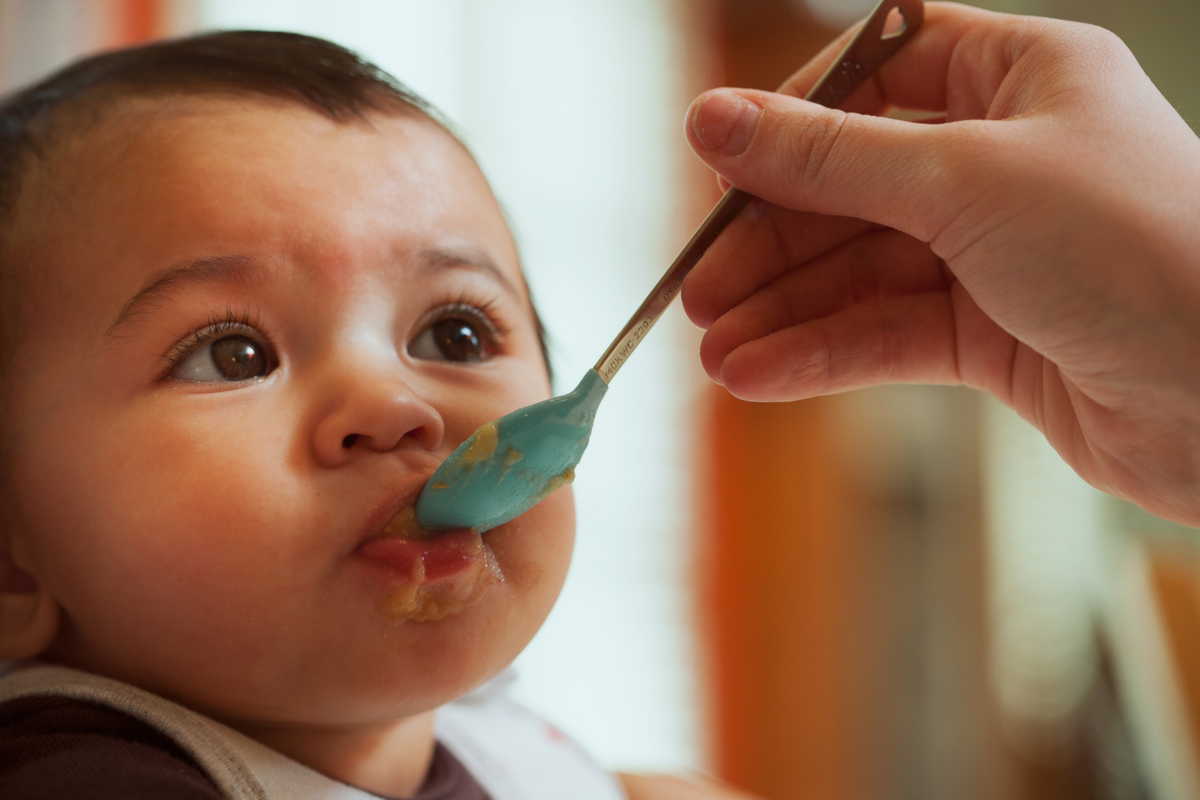
As a parent, you may be eager to introduce your child to a variety of different types and textures of food.
And as children continue to grow, they want the independence to feed themselves, and may even curiously explore what is on your plate. However, certain everyday food items could become a deadly choking hazard for your little one.
And depending on their age, there are certain foods you should avoid at all costs.
According to Baby Center, children under the age of two should avoid raw vegetables and other hard and crunchy food such as pretzels and hard candies.
In addition, there are other foods which are small and may be soft, but still propose a choking hazard.
Baby Center recommends avoiding these foods for children under the age of two:
“Nuts and seeds: Remove seeds and pits from fresh fruit such as watermelon, peaches, plums, and cherries before serving. And don’t feed your child nuts or seeds, such as sunflower or pumpkin seeds. Seeds may be too small to choke on but can get stuck in a child’s airway and cause an infection.
Sticky foods: Chewing gum and sticky foods – such as jelly or gummy candies, dried fruit, and marshmallows – can get lodged in your child’s throat. Stringy, melted cheese that’s not cut up also can be a choking hazard.
Nutbutter: Dollops of peanut butter and other nut butters, which can be difficult to swallow, are a choking hazard. Don’t serve them on a spoon. Spread nut butter thinly on bread or crackers, or thin it with water, applesauce, or yogurt.”
It’s important to remember when feeding your child to make sure their food is cut up into small pieces, no larger than ½ inch.
Many children quickly stuff food into their mouths and try to swallow without chewing, and as a parent it’s important to watch the amount of food they are placing inside their mouths.
Children can still eat foods such as strawberries, soft veggies, and other popular items as long as they are cut small enough.
It’s also critical to teach your child proper eating habits at a young age.
Encourage them to chew what’s in their mouth, and teach them to finish their bite before taking the next.
Do not allow your child to walk around or leave the table while eating, and tell them they must remain seated at all times while eating.
Since choking is a leading cause of injury in small children, it’s important to keep your children safe during mealtimes, and stay with them until they finish their food.
And while it’s good to introduce your child to new foods, it’s important to take extra precautions when feeding them certain foods which may cause them to choke.
You can still continue to help your child develop their food preferences and tastes, but be sure to pay attention when feeding them common foods which could become deadly.
Which foods do you avoid feeding small children in your home? What types of food does your child seem to enjoy eating most?
Please tell us all about it in the comments section below.
